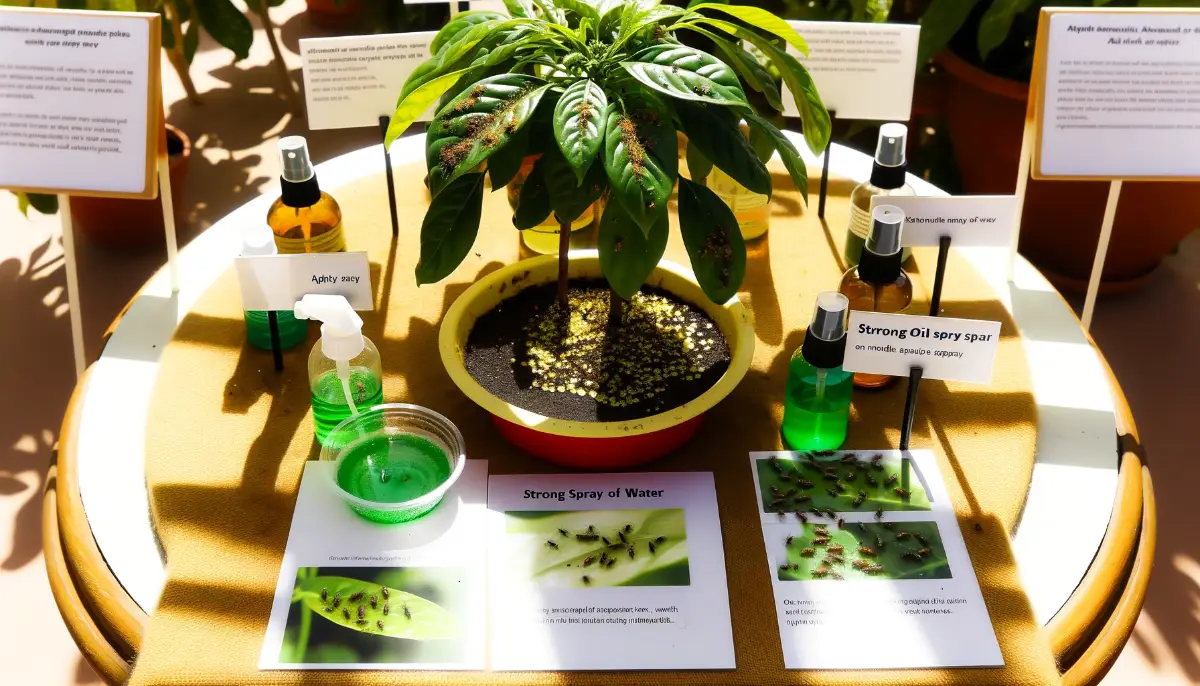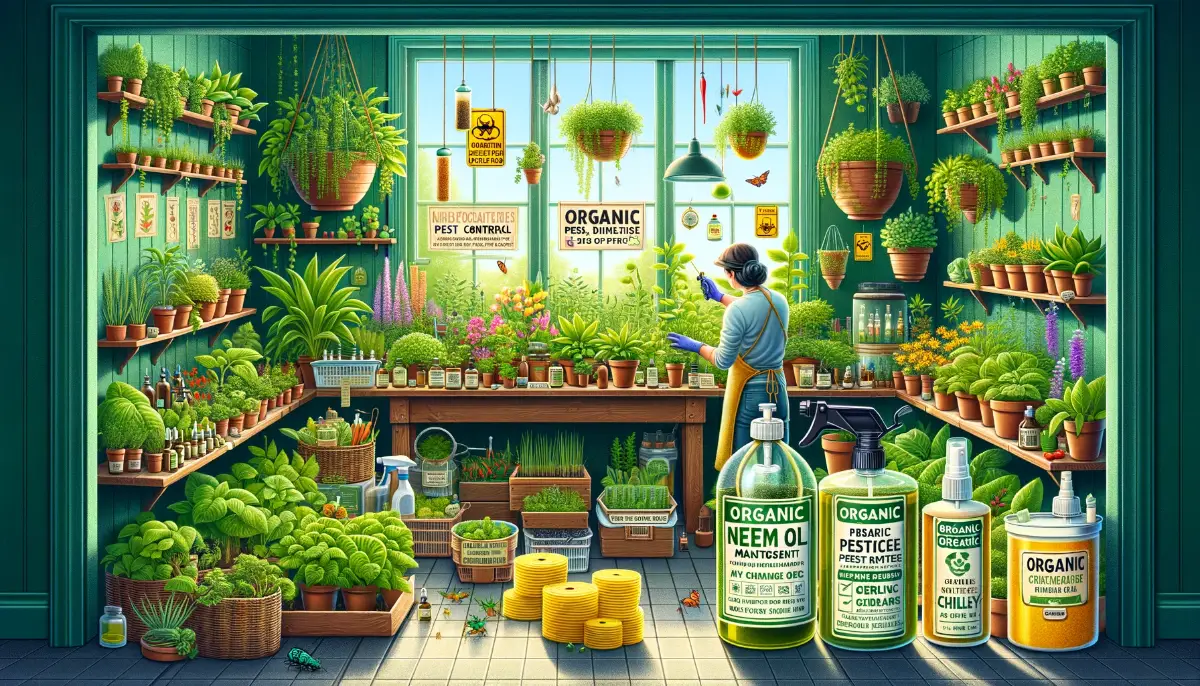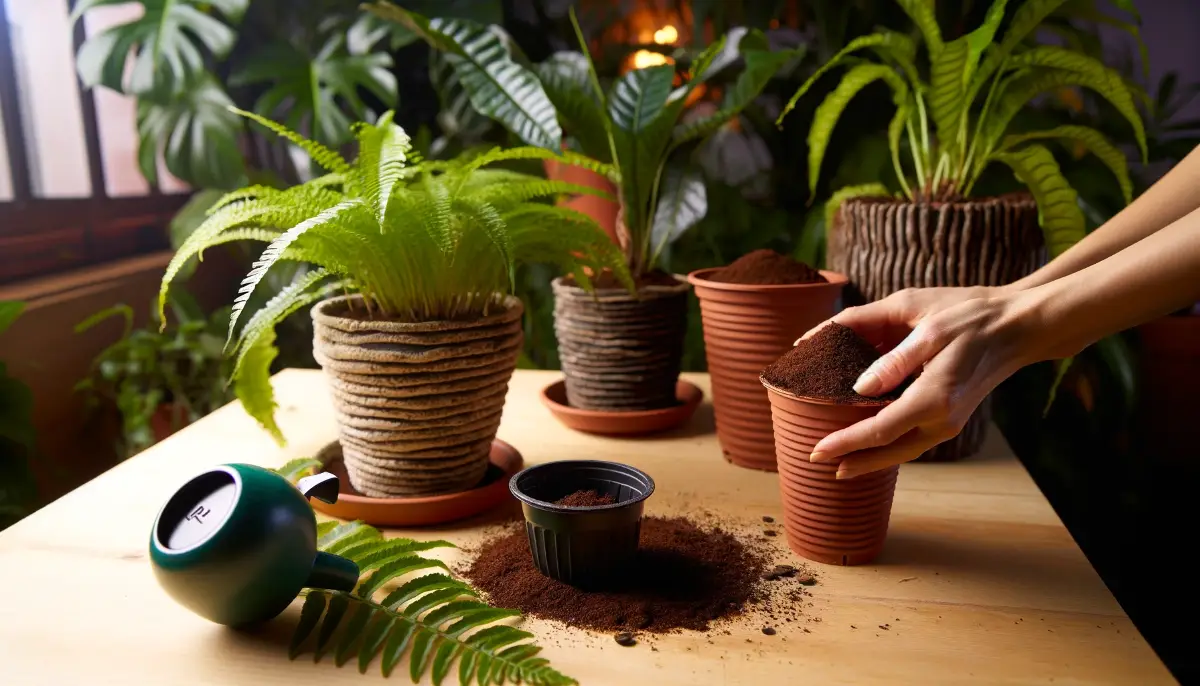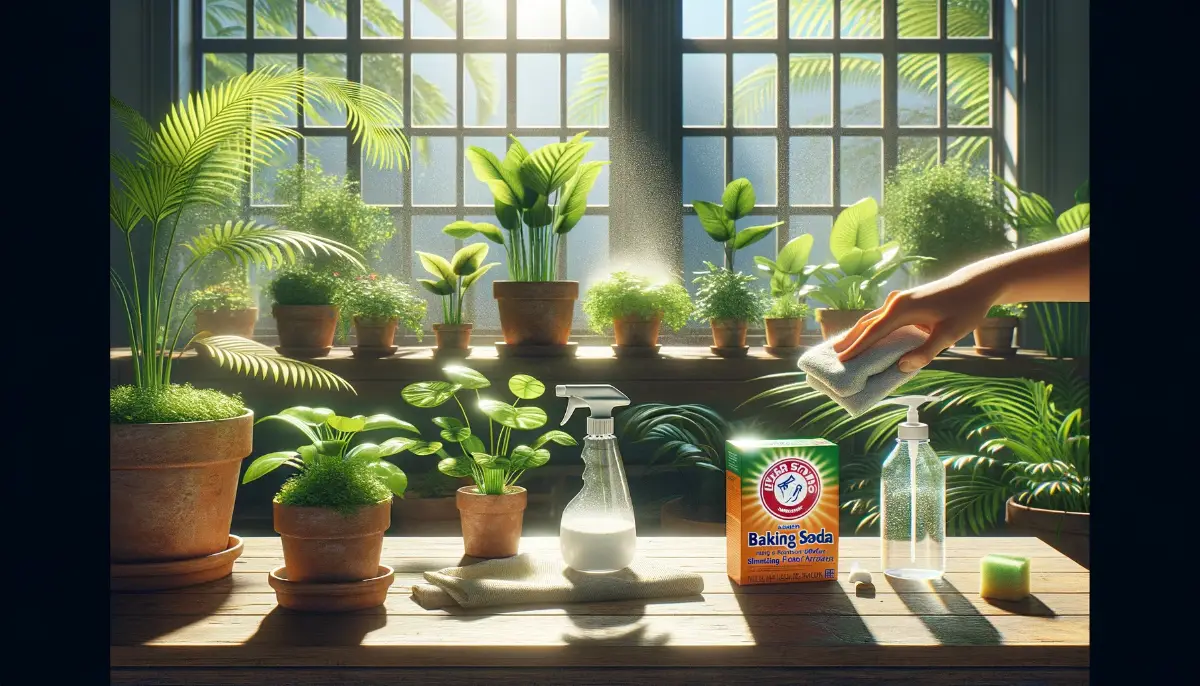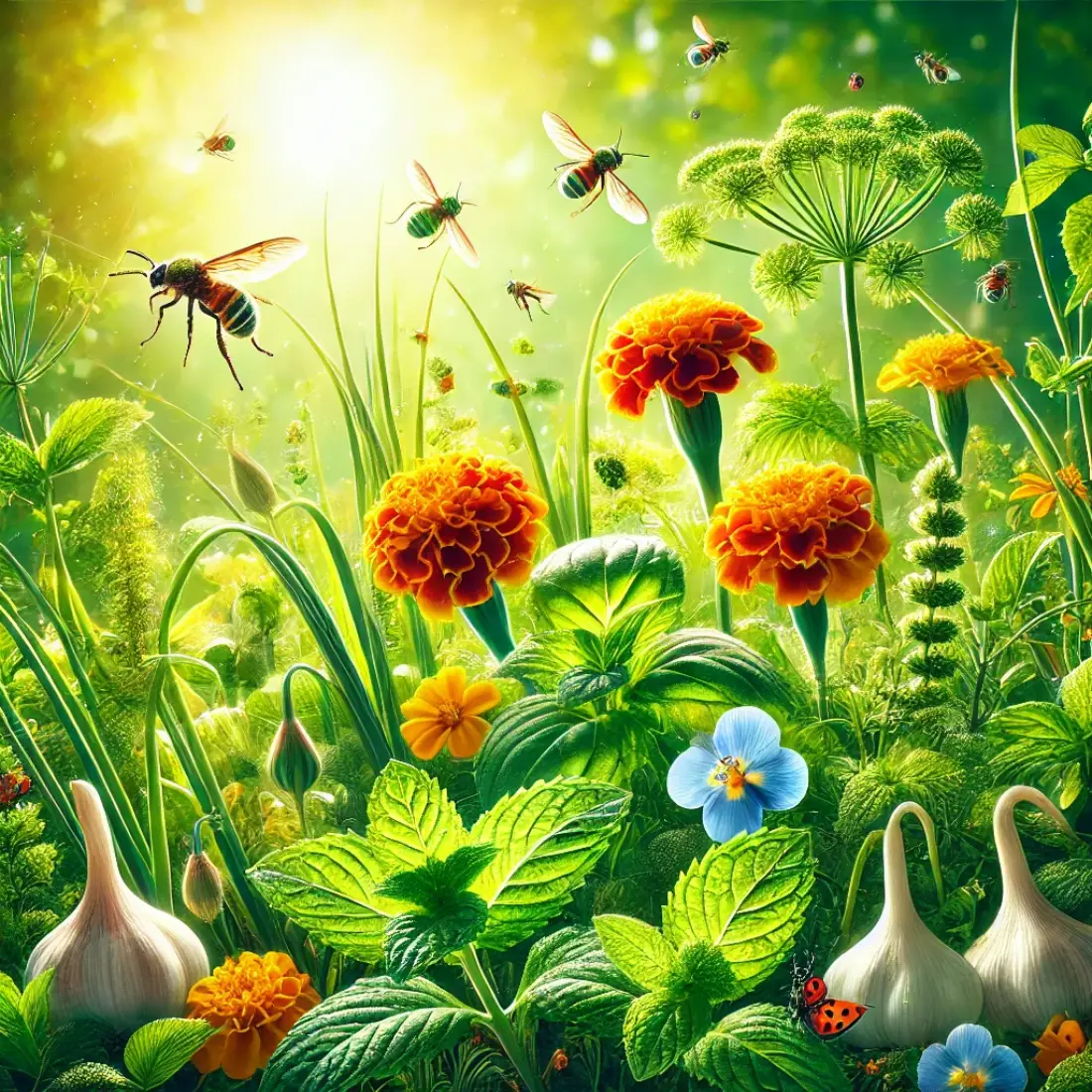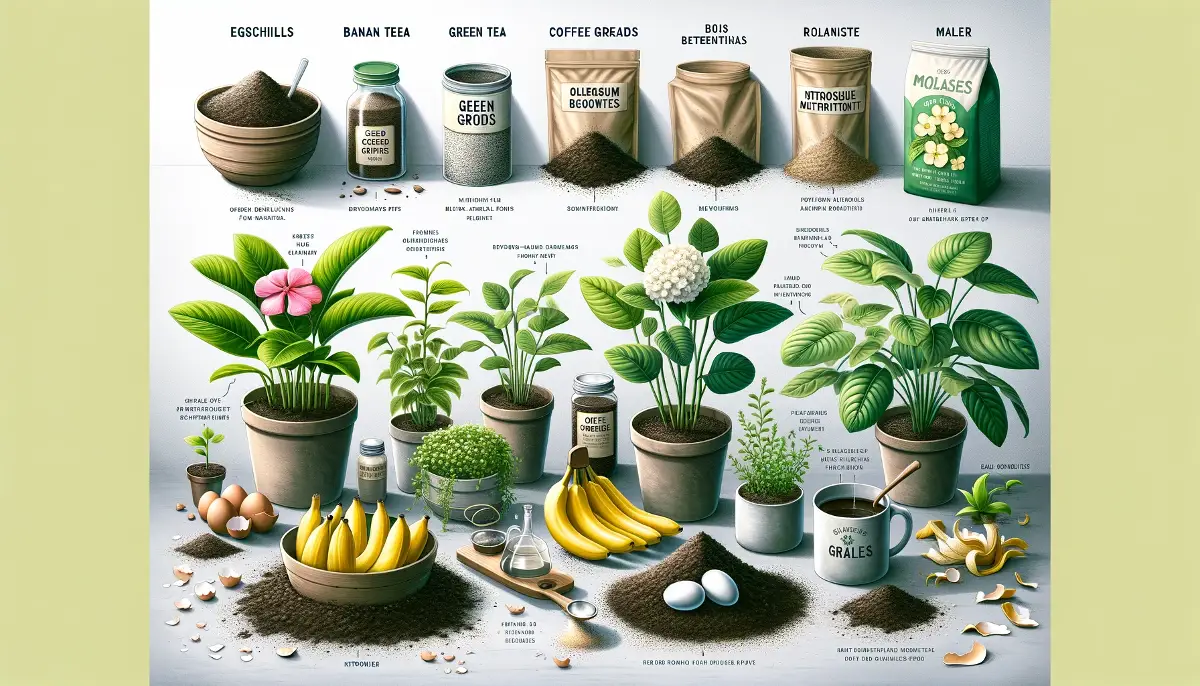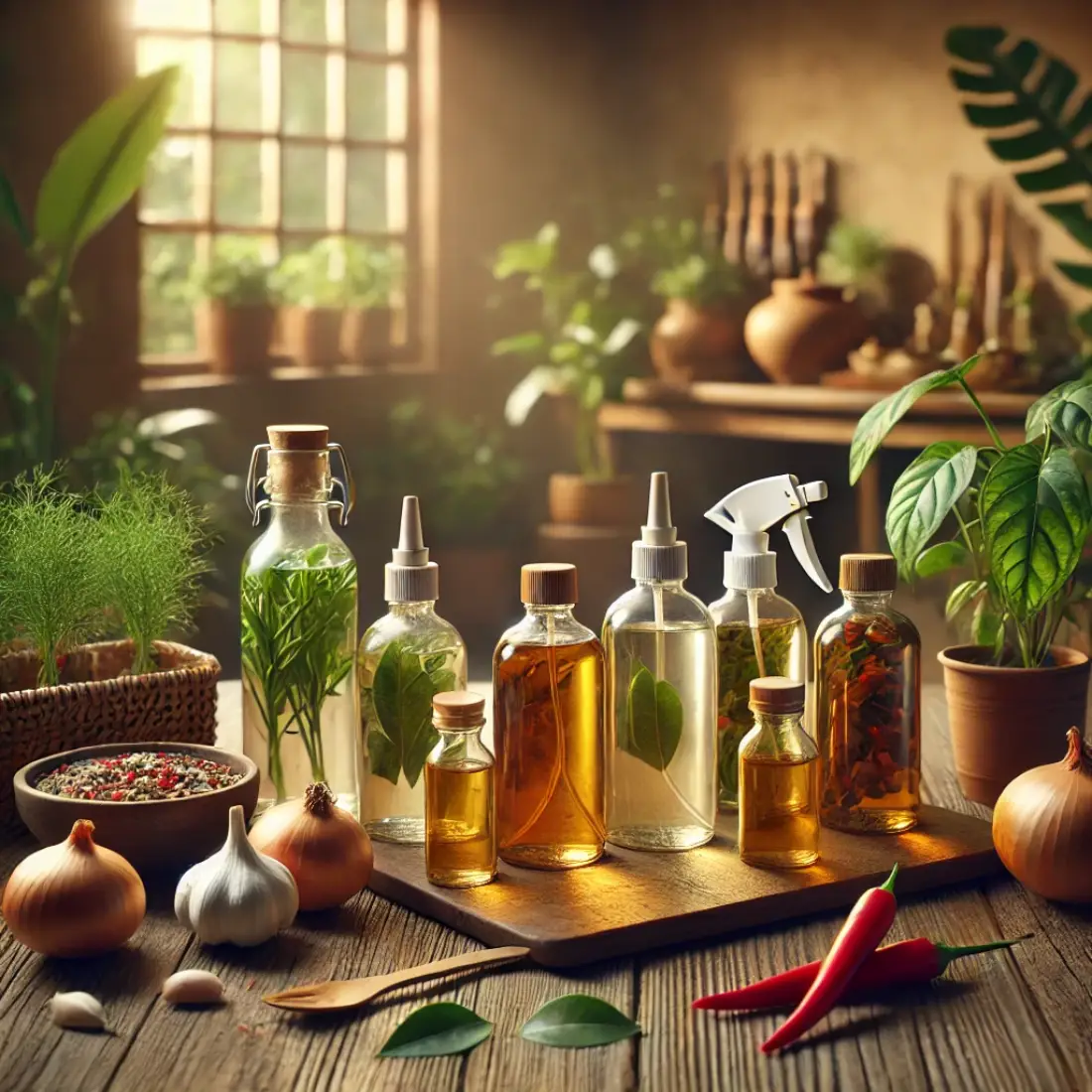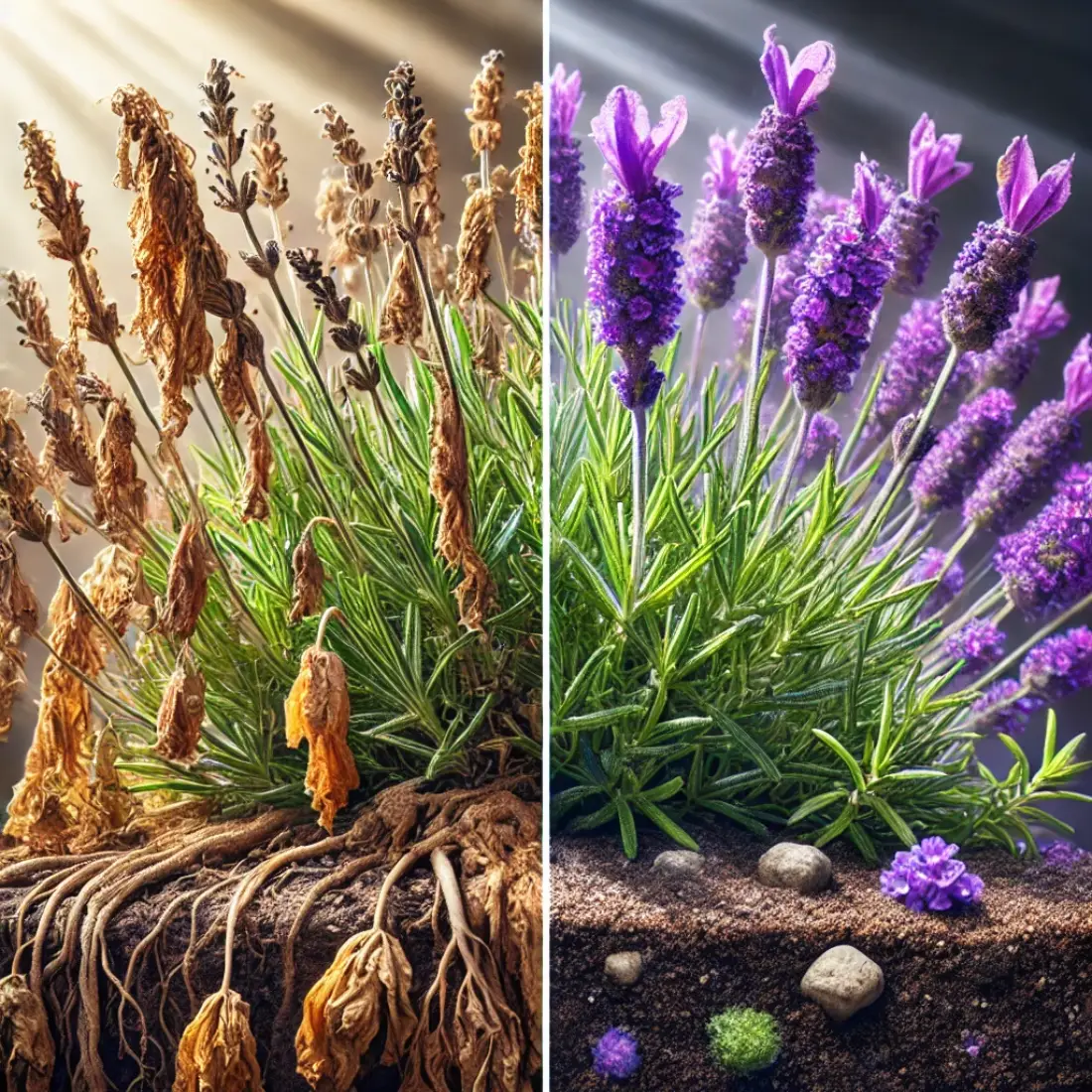Dealing with aphids at home can be tackled with several easy, home-made remedies. Below are detailed descriptions of these methods, including exact steps to prepare and use these remedies to effectively manage aphid infestations.
Effective Methods to Deal with Aphids
Essential Oil Spray Against Aphids
Ingredients:
- Water
- Mild liquid soap (such as Castile soap)
- Essential oils (peppermint, rosemary, thyme, and/or clove)
Instructions:
- Basic Mixture: Start with a base of water and a few drops of mild liquid soap. The soap acts as an emulsifier, allowing the oil to mix with water.
- Choose Your Oils: Select from peppermint, rosemary, thyme, and clove essential oils. These oils are particularly effective against aphids due to their strong scents and insecticidal properties.
- Mix: To a spray bottle, add about a teaspoon of the chosen essential oil or oils (you can create a blend if you prefer) to 1 quart of water. Add a few drops of liquid soap, then close the bottle and shake well to mix.
- Test: Before applying broadly, test the spray on a small part of the plant to ensure it doesn’t cause damage.
- Apply: Spray the mixture directly onto the plants affected by aphids, paying special attention to the undersides of leaves where aphids often reside. Reapply every few days or after rain.
- Reapplication: Essential oil sprays tend to dissipate quickly, especially in hot weather, so frequent reapplication may be necessary for continued aphid control.
Why These Oils Work
Peppermint: Known for its strong scent, peppermint oil is a broad-spectrum insecticide that can deter a variety of pests, including aphids.
Rosemary: This oil has natural insecticidal properties that make it effective against aphids and can also help repel certain types of beetles and flies.
Thyme: Thyme oil contains compounds that can repel pests and is particularly effective against chewing insects.
Clove: Clove oil contains eugenol, a compound that is toxic to many types of insects, including aphids, upon contact.
Safety and Considerations
- Plant Sensitivity: Some plants may be sensitive to oil sprays, so it’s crucial to test the spray on a small area before widespread application.
- Application Time: Apply the spray either early in the morning or late in the evening to avoid the hottest part of the day, which can increase the risk of the plant leaves burning.
- Beneficial Insects: Although essential oils are natural, they can still affect beneficial insects. Try to target the spray on aphid-infested areas and avoid indiscriminate spraying, especially on flowers where pollinators visit.
Strong Spray of Water
Using a strong spray of water against aphids, especially for indoor plants, is a simple yet effective method to dislodge and manage these pests. The process involves using a water sprayer to apply a forceful stream of water directly onto the affected plants, targeting the undersides of leaves and any visible clusters of aphids.
Here’s how to effectively use this method for indoor plants:
Equipment Needed
- A spray bottle with a “mist” or “stream” setting, or a sink sprayer attachment.
- Lukewarm water (to avoid shocking the plant).
Procedure
- Preparation: Fill your spray bottle or sink sprayer with lukewarm water. Ensure the water isn’t too cold or hot to avoid stressing the plant.
- Isolation: If possible, isolate the infested plant from others to prevent the aphids from spreading.
- Application: Use the spray bottle or sink sprayer to apply a forceful stream of water directly to the plants, paying special attention to the undersides of leaves, stems, and any other hidden areas where aphids are likely to hide. The goal is to physically dislodge the aphids from the plant.
- Repeat: Aphids can be persistent, so it may be necessary to repeat this process over several days to ensure that newly hatched aphids are also removed.
- Post-Spray Care: After spraying, allow the plant to air dry or gently pat dry with a soft cloth if needed. Check the plant after a few hours to ensure it hasn’t been stressed by the procedure.
- Monitoring: Continue to monitor your plant for aphids in the days following treatment. Repeat the spraying process if you notice a resurgence of aphids.
Benefits of Using Water
- Non-toxic: This method is safe for the plant, humans, and pets, as it only involves water.
- Immediate Effect: A strong spray of water can immediately dislodge and remove a significant portion of the aphid population.
- Environmentally Friendly: No chemicals are involved, making this method suitable for those looking for organic pest control options.
Limitations
- Potential for Spread: If not done carefully, spraying can potentially spread aphids to nearby plants or areas of the same plant.
- Repeated Applications: Some aphids may cling to the plant or be hidden in crevices, requiring multiple treatments.
Tips for Success
- Avoid using too strong a water jet, as it can damage tender plants.
- Perform the treatment in a well-ventilated area to allow the plant to dry quickly and prevent fungal growth.
- Consider combining this method with other natural aphid control measures for a comprehensive approach to pest management.
Insecticidal soap serves as a safe and effective means to combat aphids on indoor plants. It works by breaking down the insects’ protective outer layer, leading to dehydration and death. This method is particularly appealing for indoor use because it’s non-toxic to humans and pets, and doesn’t leave harmful residues on plants. Here’s a guide to using insecticidal soap against aphids indoors.
How to Use Insecticidal Soap for Aphids
Ingredients:
- Pure liquid soap (preferably unscented and without additives; Castile soap is a good option)
- Water
Instructions:
- Mix Solution: Combine 1 to 2 tablespoons of liquid soap with 1 quart of water. Stir gently to mix without creating too much foam.
- Test the Soap Solution: Before applying broadly, test the soap solution on a small part of the plant. Wait 24 to 48 hours to check for any adverse reactions.
- Application: Use a spray bottle to apply the soap solution generously on the infested plant, especially targeting the undersides of the leaves and stems where aphids usually congregate. The solution needs to contact the aphids directly to be effective.
- Repeat Treatments: Depending on the severity of the infestation, you may need to apply the solution every 4-7 days. Multiple applications can help catch any newly hatched aphids and those that were missed during initial treatments.
- Post-Treatment Care: After spraying, allow the plant to air dry. You may rinse the plant with clean water after a few hours to remove any soap residue, though this isn’t always necessary.
Tips and Considerations
- Choose the Right Soap: Not all soaps are suitable for making insecticidal soap. Avoid those containing degreasers, bleach, or synthetic fragrances, as they can harm plants.
- Timing: Apply the soap solution in the early morning or late evening to reduce the risk of leaf burn.
- Effectiveness: Insecticidal soap is most effective on soft-bodied insects like aphids. It works on contact, so thorough coverage is essential.
- Safety: While insecticidal soaps are safe for most plants, some may be sensitive. Always perform a patch test first.
Insecticidal soap is an excellent option for gardeners looking for a safe and environmentally friendly way to manage aphids on indoor plants. Its effectiveness, coupled with its safety profile, makes it a preferred choice for organic gardening.
Neem Oil Spray
Neem oil is a natural, effective remedy against aphids on indoor plants. Extracted from the seeds of the neem tree, it acts as both a pesticide and a fungicide. It disrupts the life cycle of pests without harming beneficial insects when used correctly. Here’s how to use neem oil spray against aphids indoors:
Making Neem Oil Spray
Ingredients:
- Pure neem oil
- Mild, liquid soap (as an emulsifier)
- Warm water
Instructions:
- Prepare the Solution: Mix 1-2 teaspoons of pure neem oil with a few drops of mild liquid soap in 1 quart of warm water. The soap helps the oil blend with water.
- Test on Plants: Before applying the solution extensively, test it on a small part of the plant and wait 24 hours to ensure there’s no adverse reaction.
- Application: Spray the neem oil solution on the affected plants, targeting all areas, especially under the leaves where aphids hide. Make sure the spray directly contacts the pests.
- Repeat Applications: Depending on the severity of the infestation, you may need to apply the spray once a week for several weeks to ensure you address any newly hatched aphids.
Why Neem Oil Works
- Repellent: Neem oil has a strong odor that repels aphids and other pests.
- Insect Growth Regulator: It interferes with the hormone system of insects, preventing larvae from maturing and reducing the population over time.
- Safe and Biodegradable: Neem oil is safe for humans, pets, and beneficial insects when used correctly, making it ideal for indoor use.
Tips for Using Neem Oil
Use at Dusk or Dawn: To avoid potential harm to your plants, apply neem oil during cooler parts of the day.
Shake Well: Neem oil and water separate easily. Shake the mixture frequently during application to keep it emulsified.
Avoid Overuse: While neem oil is generally safe, overuse can harm plants. Always follow the recommended concentrations and application frequency.
Neem oil offers an environmentally friendly, effective way to control aphids on indoor plants. By following the guidelines for preparation and application, you can protect your plants from aphids and other pests without resorting to harsh chemicals.
Alcohol Spray
Alcohol spray is a straightforward and effective method to combat aphids on both indoor and outdoor plants. The alcohol works by breaking down the outer protective layer of the aphids, leading to dehydration and death. Here’s how to use an alcohol spray against aphids at home:
Making Alcohol Spray for Aphids
Ingredients:
- Rubbing alcohol (isopropyl alcohol, 70% concentration is ideal)
- Water
Instructions:
- Prepare the Solution: Mix equal parts of rubbing alcohol and water. For sensitive plants, you might want to start with a higher ratio of water to alcohol to test the plant’s tolerance.
- Test the Spray: Before applying it broadly, test the spray on a small part of the plant. Check the treated area after 24 hours to ensure there’s no damage to the plant.
- Application: Spray the mixture directly onto the aphids and the affected areas of the plant. Focus on the undersides of leaves, as aphids often hide there. Ensure the solution contacts the pests for it to be effective.
- Repeat if Necessary: Depending on the severity of the infestation, you may need to apply the alcohol spray multiple times, waiting a few days between applications.
Tips for Using Alcohol Spray
- Sensitive Plants: Be cautious when using alcohol spray on plants with delicate foliage or flowers. Always perform a patch test first.
- Use in Ventilated Area: When using alcohol spray indoors, ensure the area is well-ventilated to avoid inhaling fumes.
- Combine with Other Methods: For a comprehensive approach to aphid control, consider combining alcohol spray with other methods, such as neem oil or insecticidal soap.
Why Alcohol Works Against Aphids
Fast-Acting: Alcohol acts quickly to kill aphids upon contact, making it a convenient option for immediate aphid control.
Safety: When diluted and used properly, alcohol spray is safe for the plant and doesn’t leave harmful residues.
Using an alcohol spray is a simple and effective way to control aphids, helping to protect your plants from damage without resorting to harsh chemical pesticides. Always remember to use it cautiously and test it on your plants to ensure they can tolerate the treatment.
Garlic Oil Spray
Garlic oil spray is a natural, effective way to deter aphids and other pests from indoor plants. The strong smell of garlic repels many garden pests and can even prevent future infestations. Here’s a general guide to creating and using garlic oil spray against aphids indoors:
Making Garlic Oil Spray
Ingredients:
- Several cloves of garlic
- Mineral oil or vegetable oil
- Liquid dish soap (mild and without additives)
- Water
Instructions:
- Infuse Garlic: Crush the garlic cloves and soak them in mineral or vegetable oil for 24-48 hours. This process infuses the oil with garlic’s active compounds.
- Strain and Dilute: After infusing, strain the garlic pieces from the oil. Add the garlic-infused oil to water at a ratio of about a teaspoon of oil to a quart of water. Then add a few drops of liquid dish soap to the mixture. The soap acts as an emulsifier, helping the oil mix evenly with the water.
- Test on Plants: It’s always a good idea to test the spray on a small portion of the plant first. Wait 24 hours to check for any adverse reaction before applying more broadly.
- Application: Spray the garlic oil solution liberally on the affected plants, targeting the undersides of leaves where aphids commonly reside. Ensure thorough coverage for the spray to be effective.
- Frequency: Depending on the severity of the infestation, you might need to apply the spray once every few days until the aphids are gone. Regular applications may also help prevent future infestations.
Why Garlic Works Against Aphids
- Natural Repellent: The strong odor of garlic is unappealing to aphids and many other pests, acting as a natural deterrent.
- Safe for Indoor Use: Garlic oil spray is safe to use around humans and pets, making it an excellent choice for indoor plants.
- Environmental Benefits: Unlike chemical pesticides, garlic oil spray is environmentally friendly and won’t harm beneficial insects when used correctly.
Tips for Success
Coverage is Key: For the garlic oil spray to be effective, it must come into direct contact with the aphids. Pay special attention to the undersides of leaves.
Consistency: Regular applications may be necessary to fully control the aphid population, especially during peak infestation periods.
Complementary Methods: Consider integrating garlic oil spray with other natural pest control methods for a comprehensive approach to managing aphids.
Garlic oil spray offers an effective, natural solution for controlling aphids on indoor plants. By following these guidelines, you can protect your plants from these pests while maintaining a safe and healthy environment for your home.
Prevention methods
Avoid Over-fertilizing Your Plants
How it helps: Aphids are attracted to the soft, tender shoots that result from high nitrogen levels in plants. By moderating the use of fertilizer, you can make your plants less appealing to aphids.
Instead of a heavy, one-time application of fertilizer, use smaller, more frequent applications or opt for an organic, slow-release fertilizer to minimize rapid shoot growth.
Keep Plants Well Watered
How it helps: Aphids are more likely to attack stressed plants, which often occur due to under-watering. Proper watering keeps plants robust and more resistant to aphid infestations.
Establish a regular watering schedule that maintains soil moisture, especially during dry periods, to keep plants healthy and less susceptible to aphids.
Attract Beneficial Insects
How it helps: Many insects, such as ladybugs and lacewings, are natural predators of aphids. By attracting these beneficial insects, you can reduce aphid populations naturally.
Plant a variety of nectar-rich flowers to attract beneficial insects. Examples include dill, cosmos, and basil blossoms. These plants provide the necessary habitat and food sources for the predators of aphids.
Use Natural Pest-repelling Plants
How it helps: Certain plants emit strong odors that aphids find repulsive. Planting these around your garden can deter aphids from settling.
Integrate marigolds, catnip, and other aromatic herbs like dill and cilantro around your garden. Their strong scents naturally repel aphids and protect nearby plants.
Plant Trap Crops
How it helps: Trap crops act as a decoy, attracting aphids away from your main plants. Once infested, these trap plants can be removed and disposed of, reducing the overall aphid population.
Plant nasturtiums, calendula, or nettles around the perimeter of your garden. Once they attract aphids, remove these plants to decrease aphid numbers.
FAQs on Effective Methods Against Aphids
What are aphids?
Aphids are small, sap-sucking insects that can be various colors, including green, black, brown, and pink. They often cluster on the undersides of leaves and stems.
Can aphids harm my plants?
Yes, aphids can cause significant damage by sucking sap from plants, leading to yellowing leaves, stunted growth, and decreased yields.
Are chemical pesticides necessary to control aphids?
While chemical pesticides can control aphids, many of the methods listed above provide effective, natural alternatives that are safer for the environment and beneficial insects.
How often should I apply neem oil or insecticidal soap?
For active infestations, apply neem oil or insecticidal soap once a week. For prevention, applying bi-weekly is sufficient.
Can I use these methods on all types of plants?
Most of the methods are safe for a wide range of plants. However, it’s always a good idea to test a small area first, especially with soap and oil treatments.
Do aphids spread diseases?
Aphids can transmit plant viruses, further stressing and damaging plants.
How quickly can an aphid infestation spread?
Aphids reproduce quickly, especially in warm conditions, so infestations can spread rapidly if not managed promptly.
Can I use more than one of these methods at a time?
Yes, many of these methods can be used in combination for more effective control.
Are aphid predators available for purchase?
Yes, beneficial insects like ladybugs and lacewings can often be purchased online or from garden centers for aphid control.
What should I do if these methods don’t control my aphid problem?
If aphids continue to be a problem after trying these methods, consult with a local extension office or gardening expert for additional advice and possible treatments.

